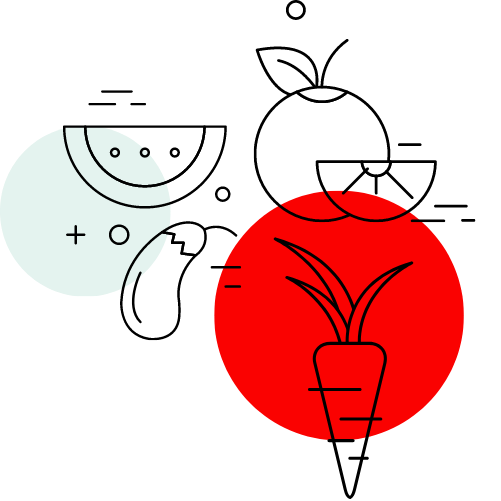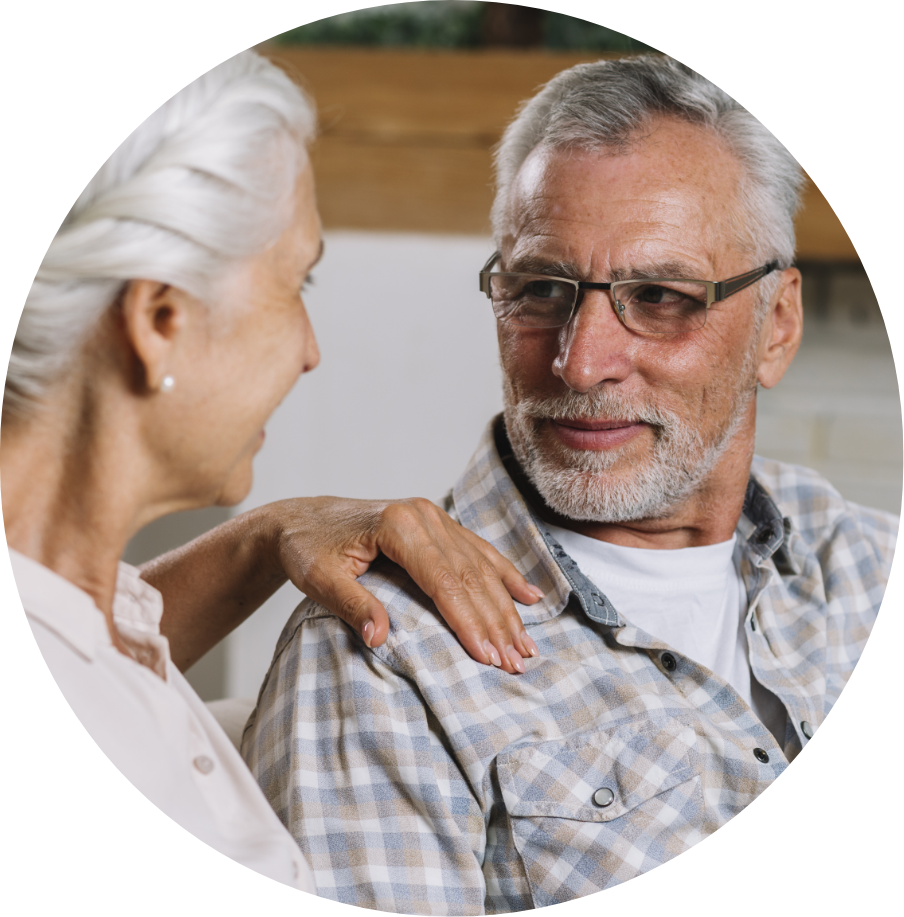Nutrition
How does the food you eat impact your health?
Eat well to live well
It doesn’t matter where you are on your journey, making healthy lifestyle choices and eating well with cancer can help:
- Boost your energy levels and increase general health and wellbeing 1,2
- Maintain a healthy weight and subsequently reduce your risk of other health conditions like diabetes3, stroke4, high blood pressure4, sleep apnoea5, and other cancers6
- Slow disease progression and reduce the likelihood of aggressive cancer 7,8
- Improve your cardiovascular health, protecting you from conditions like high blood pressure and heart disease9
- Improve your quality of life2,7 and even your life-expectancy10

Sources:
- Rios, T. C. et al. A poorer nutritional status impacts quality of life in a sample population of elderly cancer patients. Health and Quality of Life Outcomes 19, 90 (2021).
- Marín Caro, M. M., Laviano, A. & Pichard, C. Nutritional intervention and quality of life in adult oncology patients. Clinical Nutrition 26, 289–301 (2007).
- Wilding, J. P. H. The importance of weight management in type 2 diabetes mellitus. Int. J. Clin. Pract. 68, 682–691 (2014).
- Akil, L. & Ahmad, H. A. Relationships between Obesity and Cardiovascular Diseases in Four Southern States and Colorado. J. Health Care Poor Underserved 22, 61–72 (2011).
- Young, T., Peppard, P. E. & Taheri, S. Excess weight and sleep-disordered breathing. J. Appl. Physiol. 99, 1592–1599 (2005).
- Islami, F., Goding Sauer, A., Gapstur, S. M. & Jemal, A. Proportion of Cancer Cases Attributable to Excess Body Weight by US State, 2011-2015. JAMA Oncol. 5, 384 (2019).
- Torbahn, G., Strauss, T., Sieber, C. C., Kiesswetter, E. & Volkert, D. Nutritional status according to the mini nutritional assessment (MNA)® as potential prognostic factor for health and treatment outcomes in patients with cancer – a systematic review. BMC Cancer 20, 594 (2020).
- Ramos Chaves, M., Boléo-Tomé, C., Monteiro-Grillo, I., Camilo, M. & Ravasco, P. The Diversity of Nutritional Status in Cancer: New Insights. The Oncologist 15, 523–530 (2010).
- Martínez-González, M. A., Gea, A. & Ruiz-Canela, M. The Mediterranean Diet and Cardiovascular Health: A Critical Review. Circ. Res. 124, 779–798 (2019).
- Haskins, C. P., Champ, C. E., Miller, R. & Vyfhuis, M. A. L. Nutrition in Cancer: Evidence and Equality. Advances in Radiation Oncology 5, 817–823 (2020).

